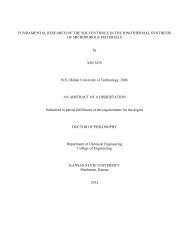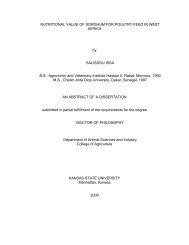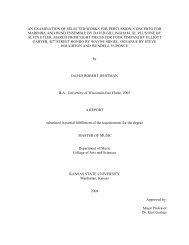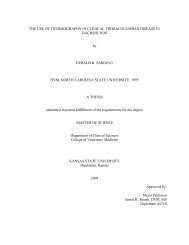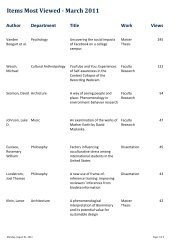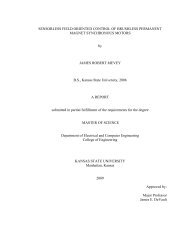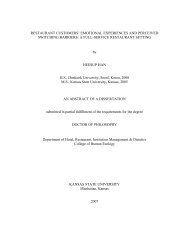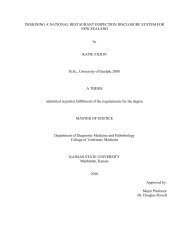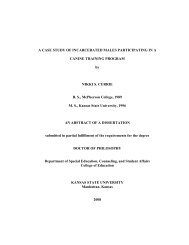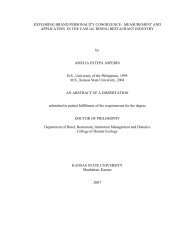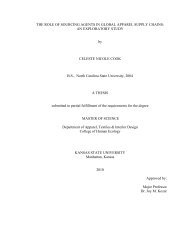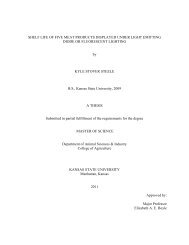SELFISH INTENTIONS - K-REx - Kansas State University
SELFISH INTENTIONS - K-REx - Kansas State University
SELFISH INTENTIONS - K-REx - Kansas State University
You also want an ePaper? Increase the reach of your titles
YUMPU automatically turns print PDFs into web optimized ePapers that Google loves.
y default. In a majority of them arrangements have been made before the commencement of<br />
the suit, by one or both of the parties to marry other parties, at the expiration of six months from<br />
the date of decree.” 113 To counteract collusion, he argued that the divorce should not become<br />
absolute until five years from the date the case was decided instead of the current standard of a<br />
six-month waiting period to prevent fraud. Judge W. S. Glass of the Twenty-First District in<br />
Marysville agreed. He claimed, “There exists an almost universal opinion that the law will<br />
relieve from mistakes and sever the bonds of matrimony upon the slightest proof of statutory<br />
cause. The right to remarry, which is acquired at the end of six months, should, in certain cases,<br />
be withheld from and denied to both parties, and in other cases to the party at fault.” 114 Judge<br />
Glass contended there were so many problems in the divorce statutes that he could not address<br />
them all at length, because of the word constraints of the newspaper. He insisted nevertheless<br />
that further changes needed to be made.<br />
Judge O. L. Moore of Abilene agreed that divorces were too easy to get in <strong>Kansas</strong> but he<br />
tended to put the blame on himself and his judicial peers. He argued, “If courts were strict in<br />
requiring competent legal and satisfactory evidence in divorce cases as in other cases, there<br />
would be a less number of divorce suits instituted and a far less number of divorces granted.” 115<br />
In his opinion, the <strong>Kansas</strong> statutes for divorce were not the problem. The problem arose when<br />
the districts courts did not correctly implement the law. The rise in divorce cases on the docket<br />
in his opinion resulted “from the laxity of courts in granting divorces upon incompetent, if not<br />
wholly insufficient testimony.” 116 By insisting that each case have satisfactory legal evidence,<br />
Justice Moore contended <strong>Kansas</strong> would see a reduction in the number of cases petitioned<br />
113 Mail and Breeze (Topeka), “Too Easy To Obtain Divorce in <strong>Kansas</strong>,” 21 July 1899.<br />
114 Ibid.<br />
115 Ibid.<br />
116 Ibid.<br />
47



